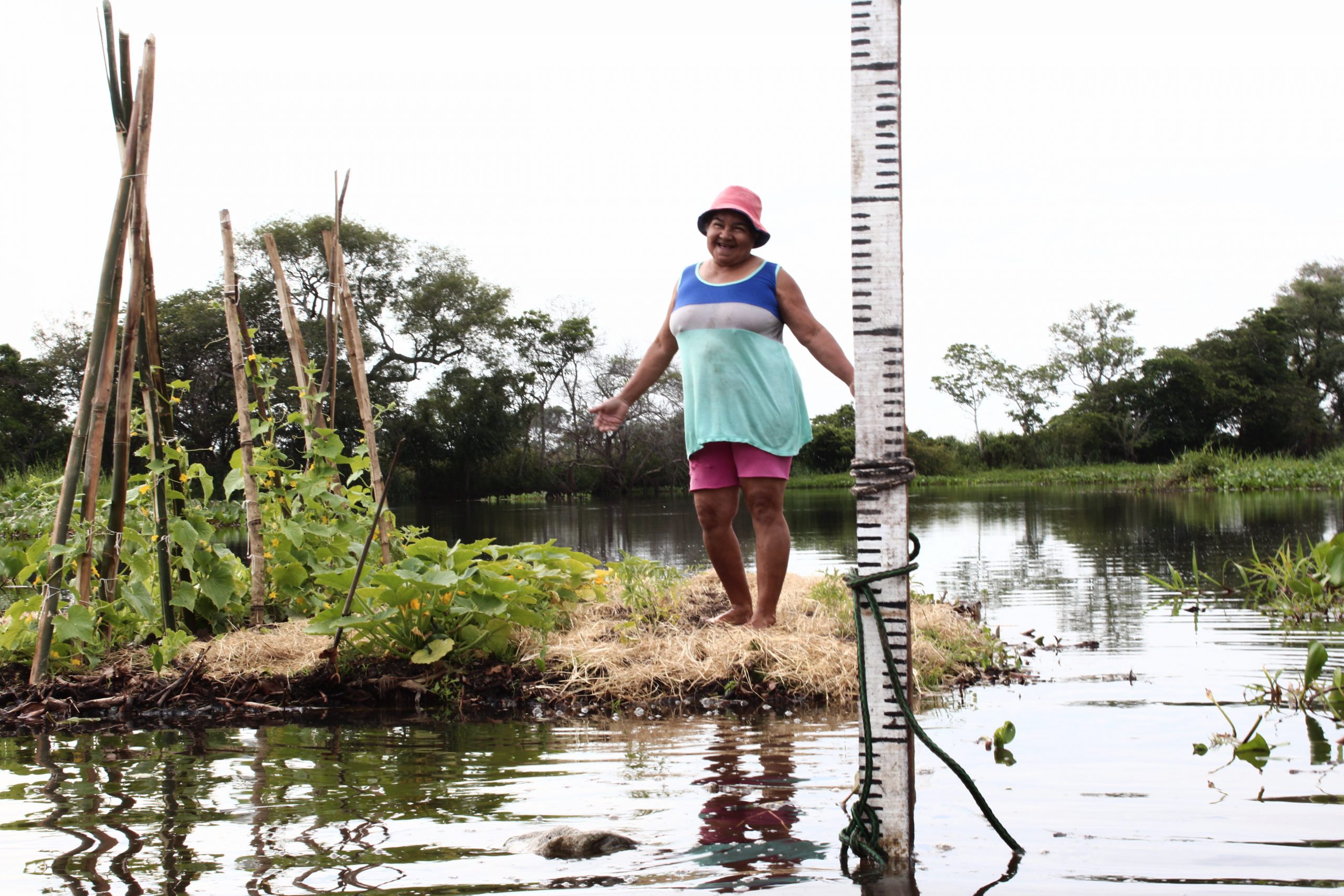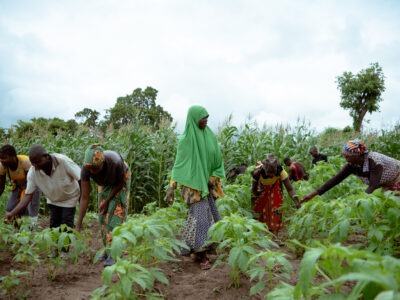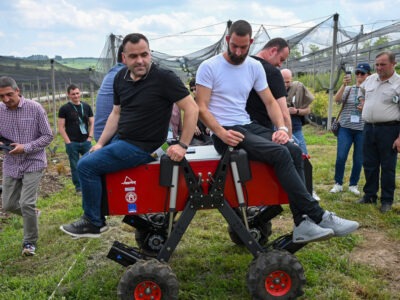
In recent years, when the rainy season came to eastern Paraguay’s San Pedro region, Maria Isabel Benítez would watch helplessly as floodwaters washed away her vegetable garden and her family’s source of food.
To help people like Maria Isabel prepare for and adapt to flooding, USAID’s Office of Foreign Disaster Assistance and ACDI/VOCA is working with vulnerable riverine communities through the Disaster Risk Reduction in San Pedro project to pilot the use of floating gardens—durable, organic structures that adapt to changes in water levels. Floating gardens, which are made from locally available, low-cost materials, allow farmers to safely and continuously grow vegetables, regardless of the weather. While successfully used in other settings, floating gardens are making their debut in Paraguay to help communities living alongside the 800 rivers and waterways in eastern Paraguay.
After construction of the gardens, the project trained communities on effective farming techniques to help them start growing vegetables. Today, thanks to this innovative program, Maria Isabel is successfully cultivating tomatoes, cucumbers, and squash—and growing more than she used to—on a floating garden.
“The floating home garden requires care to ensure that it is always in contact with the water, but I can do it without [much] inconvenience. Now, I do not need to water the plants because they consume water directly from the river, and there is no need for pest control.” –Maria Isabel Benítez
The Disaster Risk Reduction in San Pedro is a 12-month program funded by USAID’s Office of Foreign Disaster Assistance and implemented by ACDI/VOCA. The program seeks to provide communities, local government, and institutions with tools to proactively manage risk; secure sustainable food production for the victims of floods; and provide structural and nonstructural solutions to people affected by floods.








